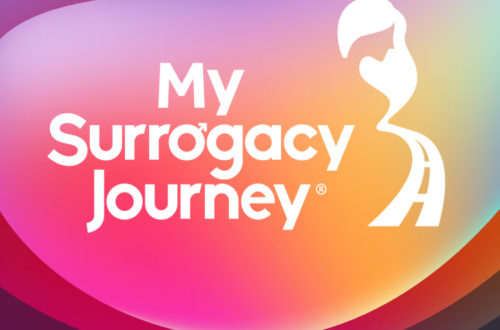
Supporting Fertility Patients: Wellbeing in the Workplace
Tracey Sainsbury, Fertility Counsellor, Lister Fertility Clinic
Navigating the emotional and physical journey of fertility treatment is a significant challenge for individuals and couples alike. This journey to parenthood undoubtedly presents unique challenges to LGBTQ+ employees too. While this journey extends beyond the workplace, employers have a unique opportunity to create a supportive environment for all of their employees undergoing fertility treatments regardless of their sexual orientation or family dynamic. By fostering a workplace culture that acknowledges and addresses the needs of fertility patients – including LGBTQ+ patients – employers can make a meaningful difference in the lives of their employees and contribute to their overall wellbeing.
During Pride month, we want to highlight the importance of wellbeing in the workplace for LGBTQ+ employees who may be undergoing fertility treatment.
The Lister Fertility Clinic is committed to always adapting and learning how to make the clinic and its services welcoming and accessible to all. We know June is Pride month – a time to celebrate diversity and spread awareness on topics that directly affect the lives of queer people.
The Lister Fertility Clinic works closely with the national patient charity Fertility Network UK. Their Fertility in the Workplace initiative shares that there are more than 3.5million people in the UK experiencing fertility problems and many more seeking assisted conception in a same-sex relationship or as a single person, with the majority of people in employment as they undergo treatment. Sadly, many people fear how sharing news of a potential pregnancy may impact their career, increasing the chance of employees not talking about their situation and feeling isolated.
Members of the LGBTQ+ community face societal barriers and prejudice everyday and this can especially be true for those individuals or couples who would like to start their journey to parenthood. This in itself can be isolating.
When making a baby, you typically need three things: an egg, sperm, and a uterus. Those in queer relationships may find themselves with only one or two of these essentials, and therefore will need the help of one or several reproductive technologies. Lister knows that finding the correct pathway for you is paramount to feeling included and supported and we understand how explaining this process to your employer may be difficult or confusing without the correct support. Workplaces that create a culture of compassion promote a supportive atmosphere where employees feel comfortable discussing their fertility journeys, which can help alleviate stress and foster a sense of belonging.

“I felt so much more at ease during our second cycle of treatment; I was in a different organisation where I felt they valued and respected me. I was happy to share my plans. I wanted to be a mum again, but also wanted the professional part of me to continue to grow too. I absolutely planned to return to work and was supported with my career development whilst trying to conceive and during my pregnancy. With my first pregnancy, I stayed with my employer for as long as I did just to qualify for maternity benefits and I felt relieved when I was able to move on,” says Lisa, working mum to three children via IVF.
As a workplace, ensuring you have knowledge of how assisted conception works can be so helpful; fertility treatments often involve frequent medical appointments, medications, and procedures that can disrupt an employee’s daily routine. Offering flexible working arrangements, such as remote work options or flexible hours, can greatly alleviate the burden on fertility patients. This flexibility allows individuals to attend appointments and manage the physical and emotional demands of their treatments while maintaining their productivity at work. Respecting the privacy of fertility patients is paramount. Employers must ensure that employee medical information remains confidential and only accessible to relevant personnel. Clear guidelines should be established to protect sensitive information, providing reassurance to employees that their privacy is respected. When it comes to LGBTQ+ employees, candid and open conversations surrounding inclusive language and acceptance is key.
Implementing or expanding employee assistance programmes (EAPs) can be beneficial for fertility patients. EAPs can provide access to counselling services, mental health resources, and support networks that specifically cater to the unique challenges faced by individuals undergoing fertility treatments. Offering these resources demonstrates a commitment to employee wellbeing and creates a supportive network within the workplace. Including fertility coverage in an EAP can also be beneficial to the business, as any support offered to employees contributes to staff retention and higher staff morale.
Caroline Spencer, Lead Counsellor at Lister Fertility Clinic, shared that her team often works with clients who are struggling with the practicalities of juggling work and treatment; clients can feel the lack of support impacts on their professional wellbeing and reduces their satisfaction and morale levels. Where there is a positive fertility policy in place within a caring, compassionate environment, people tend to cope better whatever the outcome of their treatment.

We understand that for the LGBTQ+ community there may be added stressors to dealing with fertility treatment in the workplace. Coming out to new people or answering intrusive questions about treatment technicalities or choices is something that has a direct impact on employees who are part of the queer community. Tailoring support and training all staff in these areas is paramount to creating a safe and inclusive workplace environment.
Supporting all fertility patients in the workplace is not only a compassionate approach but also a sound business decision.
By fostering a culture of compassion, inclusivity and implementing flexible work arrangements, ensuring confidentiality, and providing access to employee assistance programmes, employers can play a crucial role in alleviating the stress and challenges faced by fertility patients. Ultimately, a supportive and diverse workplace environment empowers employees to balance their fertility journey with their professional responsibilities, leading to happier, more engaged, and productive individuals.





